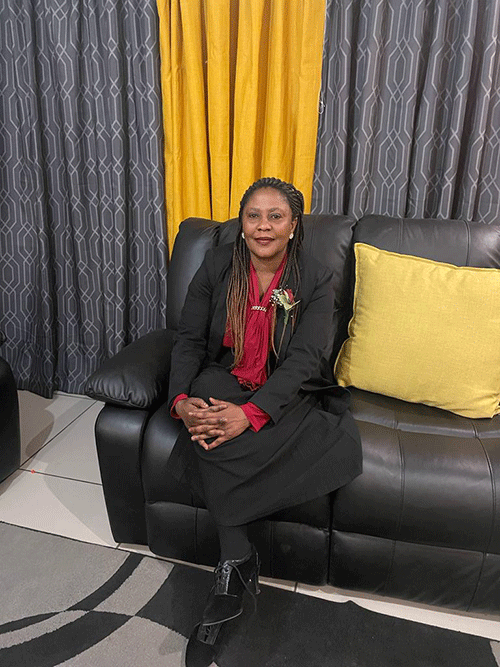To many Windhoek residents, she is their political representative on the city council.
To her learners, she is a role model, the mother they spend more time with during the day than their parents, and a fountain of knowledge.
Carolina Claudia Clemencia Hanases is a teacher by profession, who now doubles as a councillor at the City of Windhoek, where she serves as a Popular Democratic Movement (PDM) councillor.
“In the City of Windhoek, I previously served as the deputy mayor – and currently, I am on the management committee as a member,” she said.
Having lived in Windhoek for more than 30 years, she joined the public service as a teacher in 2001, she said.
“But prior to that, I was a cashier and literacy promoter in the Khomas region,” she revealed.
According to Hanases, being a teacher did not feature anywhere on the list of her career choices.
Said Hanses: “To be honest, it was not my dream to be a teacher; in fact, I wanted to be a nurse.
She added that following her failure to get admission in her career choice at the university, she decided to go for her second choice: teaching.
She has not looked back since.
In fact, she has it that her expertise and experience, which spans over 20 years, have helped her to study and project the minds of children, especially the grade ones, in a way guiding them as per their needs and ensuring they get a quality foundation.
“I made sure that they are groomed and able to sail smoothly throughout the primary and secondary levels of their education,” she said.
She taught grade 3 for almost 10 years before progressing to grade four for another five years.
“Currently, I teach grade 1 learners,” she revealed.
Benefits
Queried on what she finds beneficial in working for the government, she immediately pointed to the aspect of job security and the professional growth that comes with it.
“The benefit of working for the government is the fact that your job is secured, and there is
room for capacity growth,” she maintained.
She fingered the lack of discipline among learners and the shortage of resources as some of the challenges facing schools and teachers from fully executing their duties.
“However, one of the satisfactions is the school performance, which improved dramatically.
For the past five years, the schools have been performing very well,” she added.
The teacher-turned-politician rubbished the prevalent perception that public servants are primarily lazy and further particularly refused to comment on the situation with regard to other fields in the public service.
Said Hanases: “With regard to the perception that public servants are lazy and unproductive, I can’t speak for other sectors, but I feel that for us teachers, we are guided by the syllabi and annual plan that we have to execute as well as the work ethic of individual teachers.”
Retirement
The long-serving teacher revealed she is fast approaching the sunset of her career in the teaching profession and urged other graduates to join the fraternity.
“I am about to retire; hence, I have to pave the way for our graduates,” she said.
She is further of the opinion that teachers are overworked and burdened by workloads that could have been handled by alternative staff members within the school grounds.
“I would like the ministry of education to reduce the administration work done by the teachers, as it takes up much of the teachers’ class work,” she stressed.
They say great teachers are great leaders simply because they have the ability to educate and enable, inspire and persuade as well as to enlighten and empower their students.
They further have it that great teachers are inspiring teachers who play a variety of roles and their responsibilities are manifold.
Clearly, Hanases fits this role like a glove and does not have a problem doubling her two roles: as a politician and teacher.
Hanses lives and thrives by the notion that “When it comes to being an effective teacher and elected official, the ability to communicate with others is key”.



